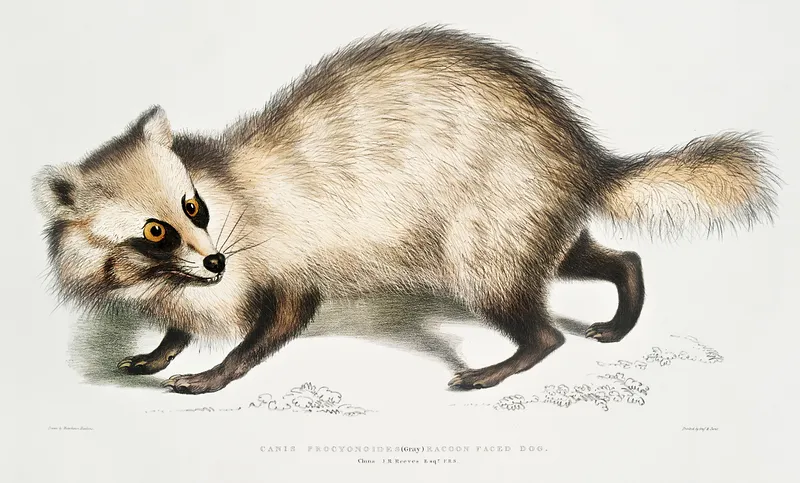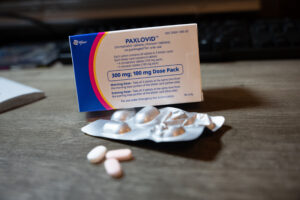Pity the Poor Raccoon Dog
An obscure Asian canid takes the rap for COVID-19. But was it framed? Chinese Raccoon Dog / Public Domain Illustration
Chinese Raccoon Dog / Public Domain Illustration
Last week, it looked like the long and bitter debate over COVID-19 origins might be a wrap. The headlines came fast and furious.
First, The Atlantic reporter Katherine Wu had the “scoop” on March 16: “The Strongest Evidence Yet That an Animal Started the Pandemic.”
Close on its heels, that same evening, The New York Times and Science ran with “New Data Links Pandemic’s Origins to Raccoon Dogs at Wuhan Market” and “Unearthed genetic sequences from China market may point to animal origin of COVID-19,” respectively.
Within 24 hours, headlines around the world echoed the same theme. The pandemic may have begun, they posited, with one or more infected animals in the Huanan Seafood Market in Wuhan, China. Raccoon dogs — canines closely related to foxes, but not to raccoons despite the resemblance — were the “guilty” parties. The new bats, as it were.
But there was a problem. The so-called “international team” of scientists pointing the finger at the raccoon dog had not published a paper. They had not even posted a so-called “preprint” online, a pre-publication manuscript that allows the scientific community to comment and makes suggestions on a study as it begins the arduous peer review process at a scientific journal.
To make matters worse, none of these major media outlets — with one exception — told their readers that the group making the claims was made up entirely of vocal, well-known advocates for a so-called “zoonotic spillover” hypothesis for COVID-19’s origins, as opposed to the controversial “lab leak” hypothesis favored by some other scientists. The one exception was The Washington Post, in a March 17 article by reporters Joel Achenbach and Mark Johnson, which pointed out that one member of the group “has long favored the market theory.” In reality, that was true of nearly everyone else the paper quoted, without telling readers that.
But there was a problem. The so-called “international team” of scientists pointing the finger at the raccoon dog had not published a paper.
Then things got complicated and a bit nasty: It turned out that the data upon which the “international team” was basing its raccoon dog conclusions actually came from a Chinese team, led by former Chinese Centers for Disease Control and Prevention director George Gao, which had been trying to get its own paper published for a year (it is reportedly under revision for the journal Nature.) The Gao team had recently deposited so-called “metagenomic” data in the GISAID database, a repository for coronavirus sequences, as a condition of its paper being published. The international team, either tipped off or through sharp-eyed diligence, had spotted the data and run with it.
(Gao’s team concluded that the pandemic did not begin in the Huanan market, but that the market was the site of a human to human “superspreader” event, similar to what might happen at a rock concert. Other researchers have suggested the virus might have been transmitted in toilets and mahjong rooms at the market.)
That made some folks mad. The World Health Organization immediately blasted China for withholding data that held clues to the pandemic’s origins. And GISAID blasted the international team for using the Gao et al. data to “scoop” the Chinese team before it had a chance to publish, in violation of the database’s terms of use.
This week, the international team finally posted a 22-page report on its interpretations of the Chinese data on a preprint server. As a number of scientists are pointing out, the report does not prove that raccoon dogs transmitted the pandemic virus to humans in the Huanan markets. At most, it confirms what we already knew, that raccoon dogs were sold in the market, along with many other wild animals, in the period leading up to the pandemic. While that is important information, it does not really move us closer to knowing how this killer plague began. Perhaps the Gao et al. paper, when it is finally published, will help.
Meanwhile, the lesson is an old one, clear as it ever was: Believe science, not headlines.
Your support matters…Independent journalism is under threat and overshadowed by heavily funded mainstream media.
You can help level the playing field. Become a member.
Your tax-deductible contribution keeps us digging beneath the headlines to give you thought-provoking, investigative reporting and analysis that unearths what's really happening- without compromise.
Give today to support our courageous, independent journalists.






You need to be a supporter to comment.
There are currently no responses to this article.
Be the first to respond.